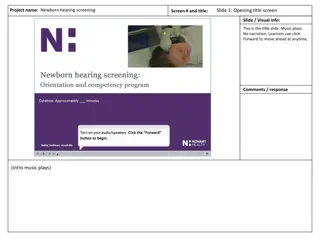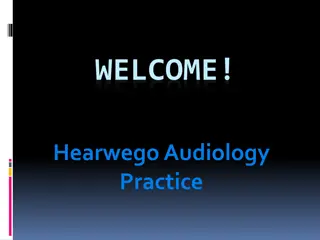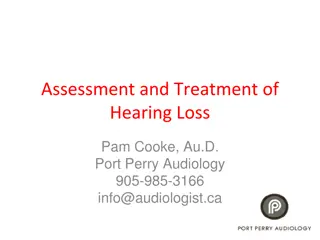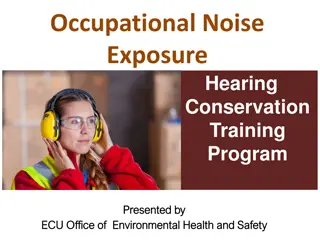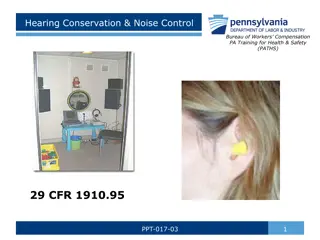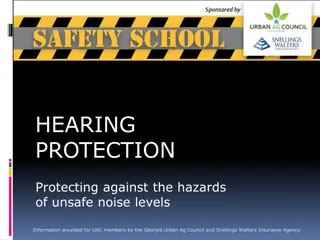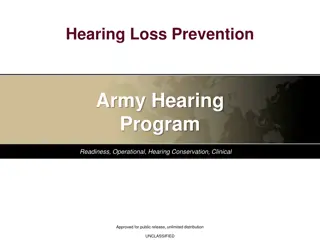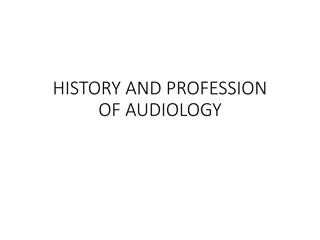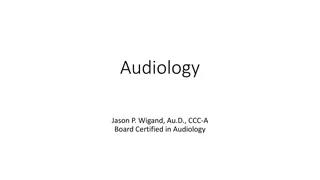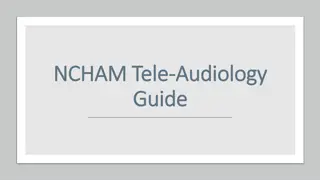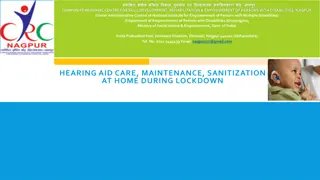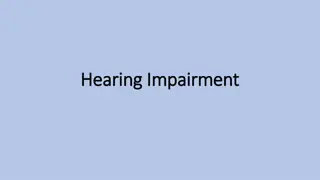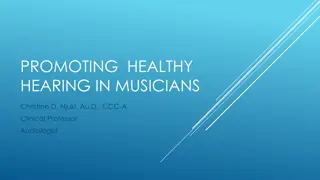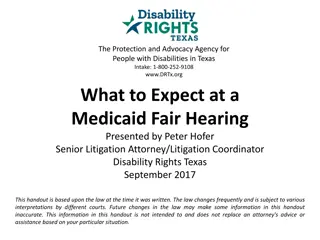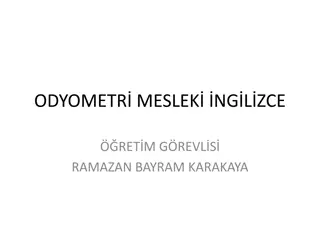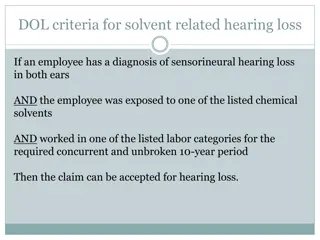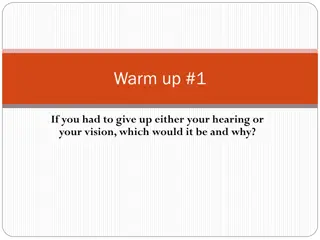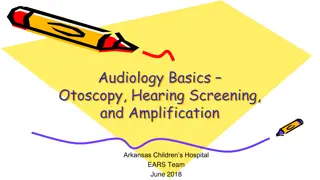Understanding Over-the-Counter Hearing Aids and Audiology Scope of Practice
Hearing loss is a prevalent issue, especially among the aging population, with various associated health risks. Audiologists play a crucial role in assessing, treating, and educating about hearing disorders. This includes recommending and dispensing hearing devices while staying informed about regulations. Over-the-counter hearing aids have garnered attention, leading to legislative developments to increase accessibility. Improved understanding and collaboration among healthcare professionals are vital in promoting hearing health.
Download Presentation

Please find below an Image/Link to download the presentation.
The content on the website is provided AS IS for your information and personal use only. It may not be sold, licensed, or shared on other websites without obtaining consent from the author. Download presentation by click this link. If you encounter any issues during the download, it is possible that the publisher has removed the file from their server.
E N D
Presentation Transcript
Over-the-Counter Hearing Aids
Agenda Items Audiology Scope of Practice Hearing Loss Hearing Aids Over-the-Counter Hearing Aids Educate. Promote. Collaborate. - Tools for patients - Tools for pharmacists - Tools for physicians
Audiology Scope of Practice Audiologists are responsible for the assessment and treatment of hearing, balance, and other related disorders across the lifespan. Responsibilities may include the provision of comprehensive audiologic (re)habilitation services for individuals who are experiencing hearing, balance, or other related disorders; recommendations for the selection, fitting, and dispensing of hearing devices; and education to other professionals about the symptoms of hearing loss, the specific needs of persons using hearing devices, and the role of audiologists. Audiologists should remain informed of federal and state mandates and initiatives that impact individuals with hearing loss.
Hearing Loss Hearing loss is a public health issue. The incidence of hearing loss increases with age. Several health risks are associated with hearing loss: communication challenges social isolation mental health challenges accelerated cognitive decline Many people with hearing loss will benefit from the use of hearing technology. The audiologist plays a critical role in health care.
Hearing Aids Hearing aid: Any wearable instrument or device designed for, offered for the purpose of, or represented as aiding persons with or compensating for, impaired hearing (CFR - Code of Federal Regulations Title 21) Hearing aids are considered medical devices and, as such, are regulated by the U.S. Food and Drug Administration (FDA). The FDA uses a risk- based classification system for hearing-related devices. CLASS RISK REGULATORY REQUIREMENTS HEARING TECHNOLOGY EXAMPLES CLASS I Low General controls Air-conduction hearing aids CLASS II Moderate General Controls and Special Controls Wireless air-conduction hearing aids, bone-conduction hearing aids, tinnitus maskers CLASS III High General Controls and Premarket Approval Cochlear implants, middle ear implants, auditory brainstem implants
OTC Hearing Aid Legislation Timeline October 2015: President s Council of Advisors on Science and Technology (PCAST) recognizes the impact of untreated hearing loss on an aging population. PCAST makes several recommendations, including the creation of a new category of basic hearing aids to be sold over the counter. August 2018: Hearing care associations (AAA, ADA, ASHA, IHS) release Regulatory Recommendations for OTC Hearing Aids: Safety and Effectiveness, a consensus paper. October 2021: the FDA releases proposed rule for OTC hearing aids for adults 18 and older with mild to moderate hearing loss. August 2017: The FDA Reauthorization Act of 2017 directs the FDA to develop regulations for over-the-counter hearing aids, with the devices to be made available to the public by 2020. August 2022: The FDA releases a final rule establishing a regulatory category for OTC hearing aids. This rule is effective 10/17/2022. 2020: COVID-19 pandemic occurs.
Over-The-Counter Hearing Aids The FDA has established a new regulatory class of over- the-counter (OTC) hearing aids for adults (18 years and older) with self-perceived mild to moderate hearing loss. OTC hearing aids are not right for everyone.
ASHA OTC Hearing Aid Toolkit ASHA is committed to helping audiologists minimize the disruption of OTC hearing aids on their practice and identifying opportunities to raise awareness of audiology. Audiologists can use the ASHA Over-the-Counter Hearing Aid Toolkit to: educate patients about OTC hearing aids; promote the continued value of an audiologist; and collaborate with and market your practice to other trusted professionals influencing OTC hearing aid decisions.


